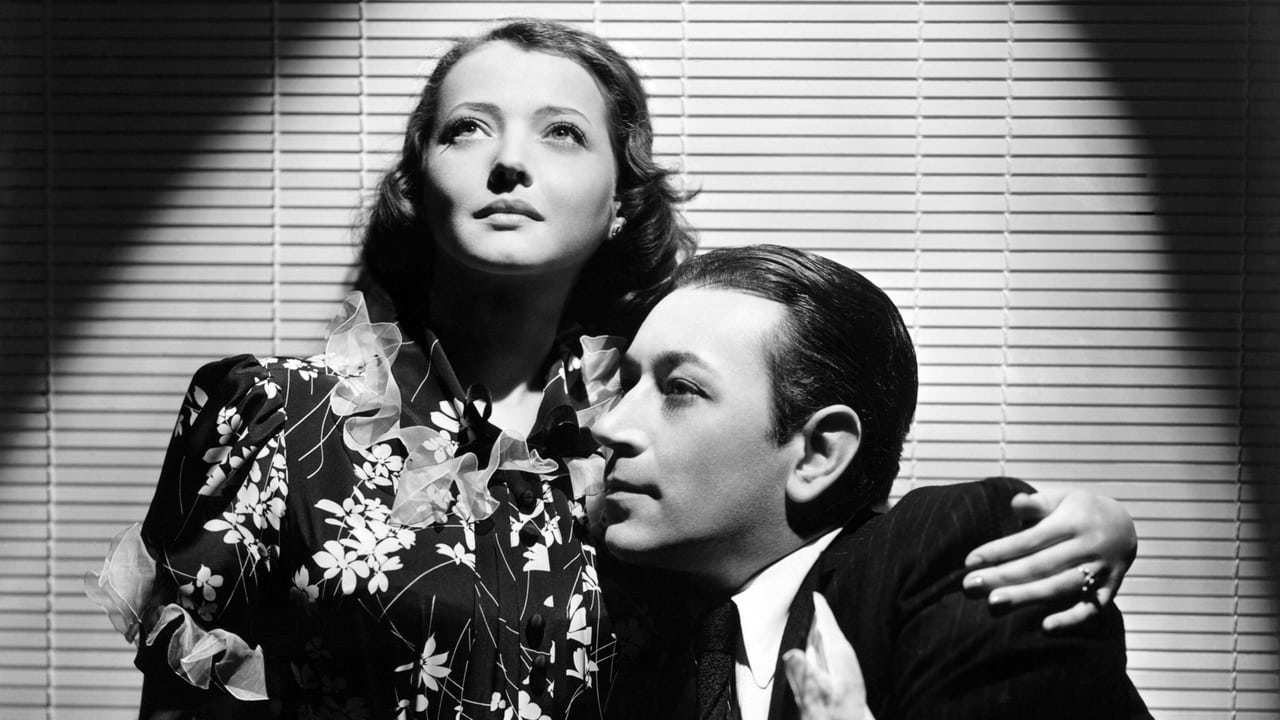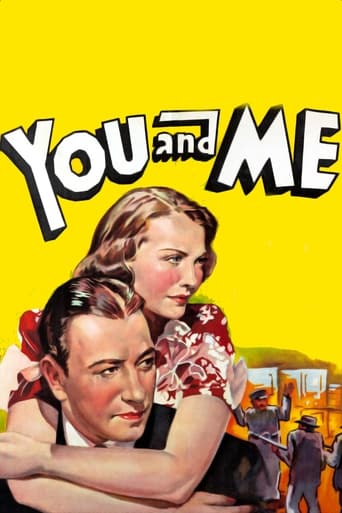

good back-story, and good acting
... View MoreThe film was still a fun one that will make you laugh and have you leaving the theater feeling like you just stole something valuable and got away with it.
... View MoreIf the ambition is to provide two hours of instantly forgettable, popcorn-munching escapism, it succeeds.
... View MoreActress is magnificent and exudes a hypnotic screen presence in this affecting drama.
... View MoreIf you've ever studied film history, you probably know that 1940s Hollywood Noir was influenced by the influx of German directors who immigrated to the US as the Nazis rose to power. These directors brought some stylistic aspects of Wiemar cinema to post-war Noir. What's less well know is that in the 1930s and war years, before the stylistic and political chill of the red scare, already on the rise in the late '40s, the German directors, such as Fritz Lang, were using their Brechtian style- openly political and meta-textual- in much more brazen and less-watered down ways than they were in the post-war Noir years. (Lang would later direct "Hangmen Also Die"- one of the few Hollywood scripts Brecht ever wrote.) "You and Me" is a largely forgotten example of the films of this era. The film is fascinating and entertaining, although perhaps too idiosyncratic to be called "good." For its first two thirds its a genuinely touching and psychologically acute love story between two ex-cons struggling to get by. It would constitute a solid, conventional drama if it were not fragmented by nightmarish musical numbers lecturing the audience that, for instance, its a bad idea to try to break out of prison on your own. Most bizarrely, the last third changes tone completely and becomes a bona-fide screwball comedy revolving around a chalk board lesson mathematically demonstrating why crime, literally, doesn't pay. Although Brecht's influence is felt in almost every scene the politics of the film are in no way radical- as some Hollywood films of the era were in underlining ways. This piece, rather, is merely cynical about American capitalism, without actually questioning it.
... View MoreYou And Me is an interesting experiment which falls way short in execution, but still is an interesting view.The closest American film I could compare it to is Al Jolson's Hallelujah I'm a Bum which utilized that same sing/talk rhythmic technique in many spots. Rodgers&Hart's efforts were not as butchered as Kurt Weill's were, my guess is that Paramount got cold feet and tried to salvage the film as they saw it by making it more of a typical gangster yarn.The story involves Harry Carey who as part of his payback to society hires freshly paroled convicts in his department store. The presumption is that he does screen them for employment. George Raft is one of those ex-convicts hired there and he meets and falls for Sylvia Sidney. She knows about him, but he doesn't know she is also on parole. Other prison pals working for Carey are, George E. Stone, Warren Hymer, Jack Pennick, Robert Cummings and Roscoe Karns.One very unregenerated crook, Barton MacLane, tries to get the whole crew of them to help knock over the store. What happens is the rest of the plot of the film.Perhaps You and Me might have been better done elsewhere. I'm thinking of Warner Brothers who specialized in these working class stories. Barton MacLane, George E. Stone, and Warren Hymer certainly all were part of Warner's gangster stable and George Raft moved to Warner Brothers himself a year after You and Me came out. Paramount just didn't go in for stories like these and the results show.Highlight of the film is Sylvia Sidney giving a lecture in economics about how crime doesn't pay. For heist guys like these when you deduct the expenses of a job, it really doesn't pay. Only the folks at the top really make out.By the way you might call what Kurt Weill tried to do musically and Fritz Lang brought to the screen as one long rap music video. You and Me may have been way too soon ahead of its time.Still it's probably worth a look if for no other reason than to see a joint collaborative effort of two expatriates from the Nazi regime, Kurt Weill and Fritz Lang.
... View MoreAs a fan of both Sylvia Sidney and Kurt Weill, I have wanted to see this film ever since I read Leonard Maltin's description of it. It is apparently not available for home viewing, so Heaven bless the Brooklyn Academy of Music, which screened 'You and Me' a couple of weeks ago as part of its Kurt Weill centennial celebration (which continues as I write this).According to an edition of Stagebill that was made available to audiences at the screening, Weill composed 23 music cues for 'You and Me,' but the Paramount brass did not care for his work and used only nine of them. (This was typical of Weill's experience in Hollywood.) That's a genuine tragedy, and there's no question that it does diminish the film. 'You and Me' still rates a 10 in my book, however, for the outstanding performances from the entire cast and its anti-naturalistic approach to gritty, "realist" subject matter.The line between anti-naturalism and implausibility is a fine one, and the film crosses that line during its last 15 minutes or so. Still, I wonder if audiences in 1938 didn't understand that ending as a joke. They may have been more sophisticated than we are today.In any case, if you get a chance to see this film, grab it.
... View MoreThis collaboration by Fritz Lang and Kurt Weill is one of the oddest films ever made. It's part gangster story, part comedy, part soap opera, part leftist propaganda...and part musical! Perhaps Weill was trying to find the cinematic equivalent of what he did in the theater with Bertolt Brecht. In any event, the experiment is a failure but a noble failure and in parts quite interesting. It's definitely worthy seeing for two montages set to rhythmic voiceover narration, for Sylvia Sidney's sympathetic performance and for the fact that you'll never see anything else quite like it.
... View More